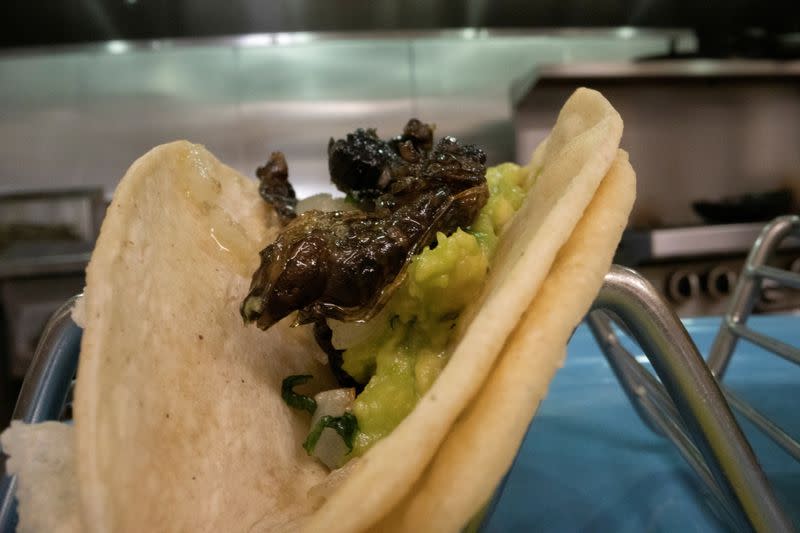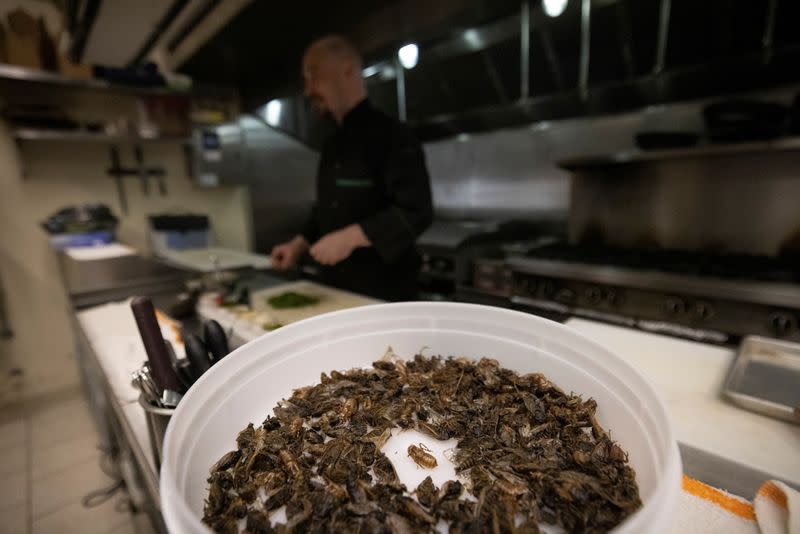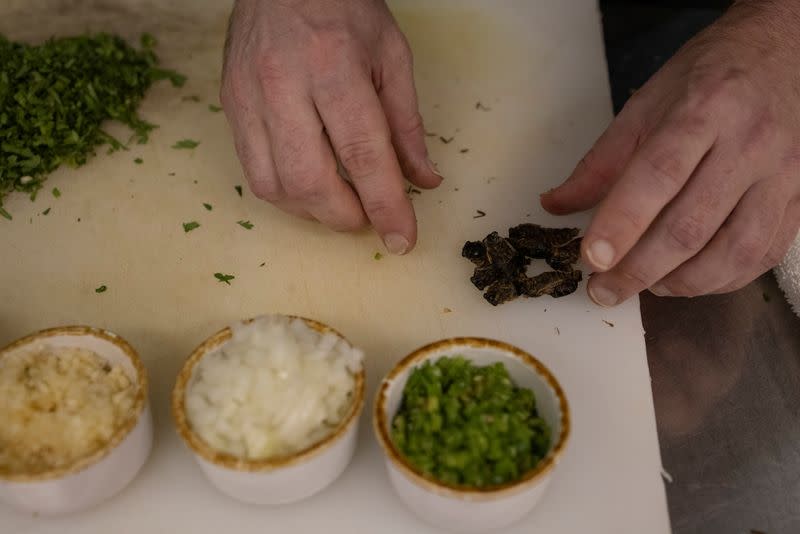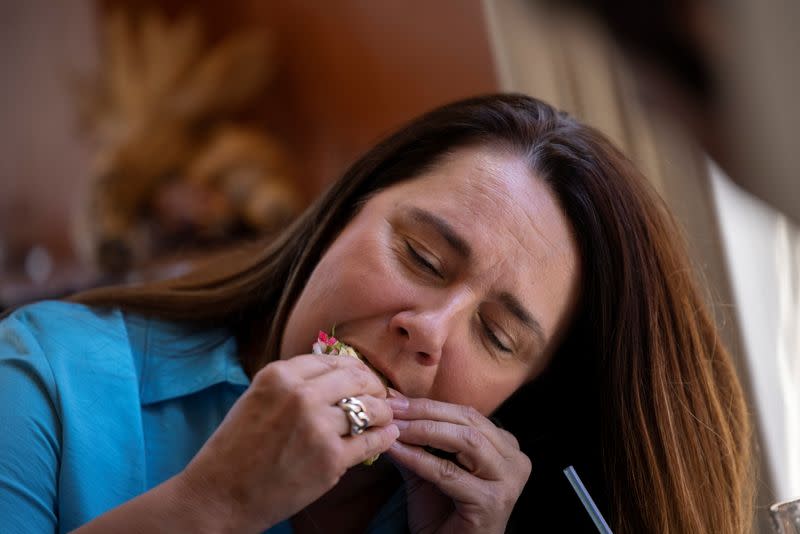Guess who's coming to dinner? Virginia chef serves up tasty cicada tacos
- Oops!Something went wrong.Please try again later.
By Katharine Jackson
LEESBURG, Va. (Reuters) - For many Washington-area residents, the coming of the 17-year cicadas is a dreaded nuisance, but for chef Tobias Padovano it is a rare culinary opportunity.
In their few weeks on the Earth's surface, the many billions of 1-1/2 inch-long (3.8 centimeter) black and orange insects will make life noisy and messy for those around them. But they also make a tasty taco.
"More and more people keep coming to the restaurant itself to say, 'Hey, do you have the cicadas ready yet?'" said Padovano.
His Mexican eatery in Leesburg, Virginia, about 40 miles (64 km) northwest of Washington, regularly features grasshopper tacos, so adding cicadas to the menu as a limited-time special was an easy transition.
The 17-year cicadas, part of Brood X, are just now coming out of the ground in big numbers in 15 states, including those surrounding Washington, and a separate region to the west that includes Ohio, Indiana, Kentucky and Tennessee.
Padovano, 43, gathers the red-eyed insects in a big plastic bag from their suburban habitat shortly after they emerge from their 17-year stay underground and make their way up trees. He boils them like lobsters, bakes them and plucks their legs and iridescent wings for easier eating.
The cicadas are then sauteed in onion and garlic, topped with serrano chile, avocado and radish in a mole verde sauce, and wrapped in flour tortillas.
Like all insects, entomologists say cicadas make a low-fat, high-protein meal.
But how do they taste?
"You can definitely feel a bit of the crunch," said Will Becker, 19, of his first cicada taco. "But you start to chew it, it kind of just melts in."
His mother, Michele Becker, 52, a regular at Padovano's Cocina on Market restaurant, was also pleasantly surprised.
"If you're an adventurous eater, the way I am, it's a great time, it really is," she said.
Many customers have commented that they taste like shrimp, Padovano said, who sees cicadas as just another critter meant for human sustenance.
"Being on top of the food chain has its perks," he said.
(Reporting by Katharine Jackson in Leesburg, Writing by Peter Szekely; Editing by Lisa Shumaker and Rosalba O'Brien)





